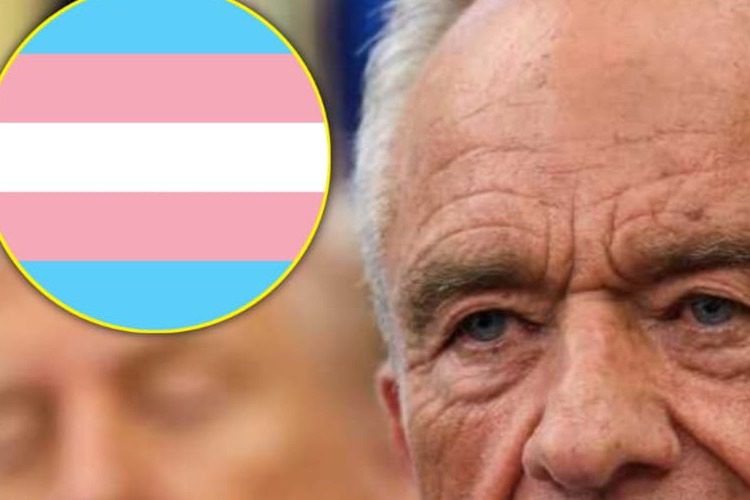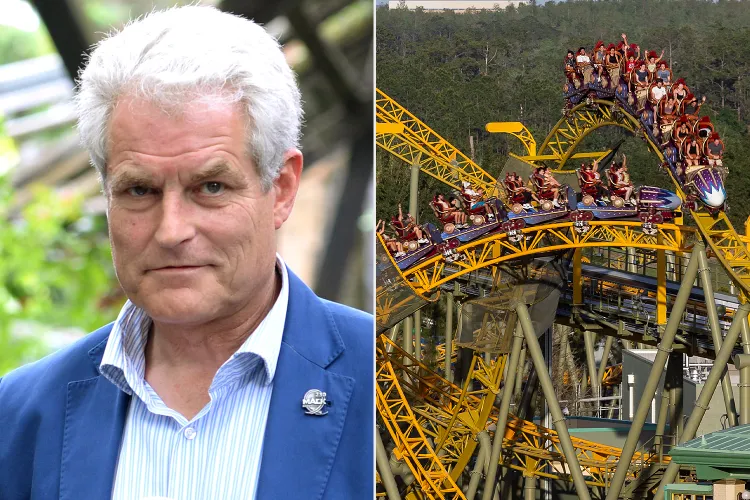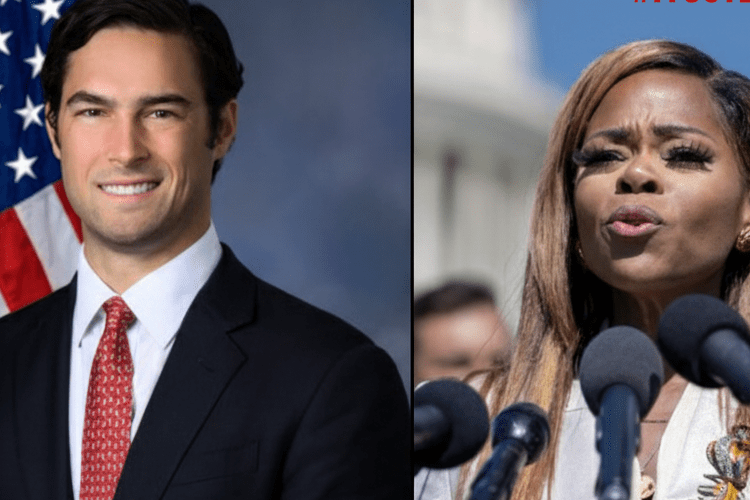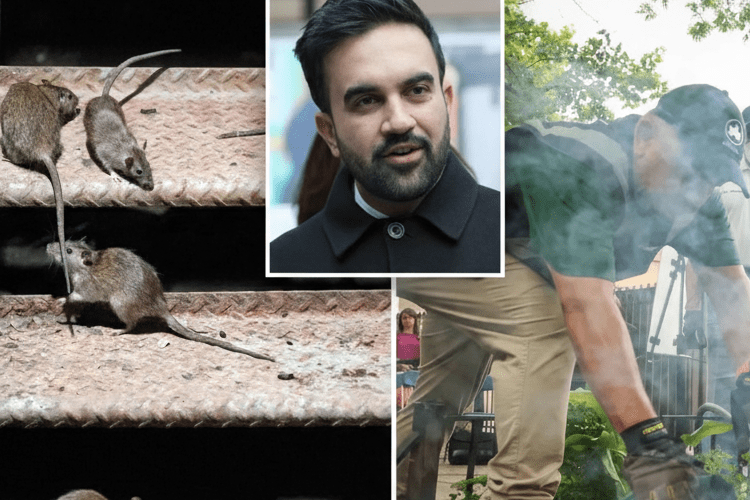From White House Warrior to Truth-Teller: How RFK Jr.’s Peer-Reviewed Bombshell Under Trump Is Shattering the Trans Medical Myth and Sparking a National Reckoning for Vulnerable Youth
In the hushed corridors of the U.S. Department of Health and Human Services, where the weight of public trust hangs as heavy as the oak-paneled doors, a seismic shift unfolded on November 19, 2025—one that felt less like a bureaucratic announcement and more like the crack of dawn breaking over a long, shadowed night. Robert F. Kennedy Jr., the environmental crusader turned HHS Secretary under President Donald J. Trump’s bold second-term vision, stood at the podium in a sunlit briefing room, his voice steady but laced with the quiet fire of a man who has spent decades battling hidden poisons in America’s veins. Flanking him were stacks of meticulously bound reports, their covers embossed with the seal of rigorous science, and in his hands, a document that promised to rewrite the narrative on one of the most divisive health debates of our time: the long-term impacts of puberty blockers and gender-transition surgeries on America’s youth. As cameras flashed and reporters leaned forward, Kennedy didn’t mince words. “The American Medical Association and the American Academy of Pediatrics peddled the lie that chemical and surgical sex-rejecting procedures could be good for children,” he declared, his eyes meeting the lens with unflinching resolve. “They betrayed their oath to first do no harm, and their so-called ‘gender-affirming care’ has inflicted lasting physical and psychological damage on vulnerable young people. That is not medicine—it’s malpractice.”
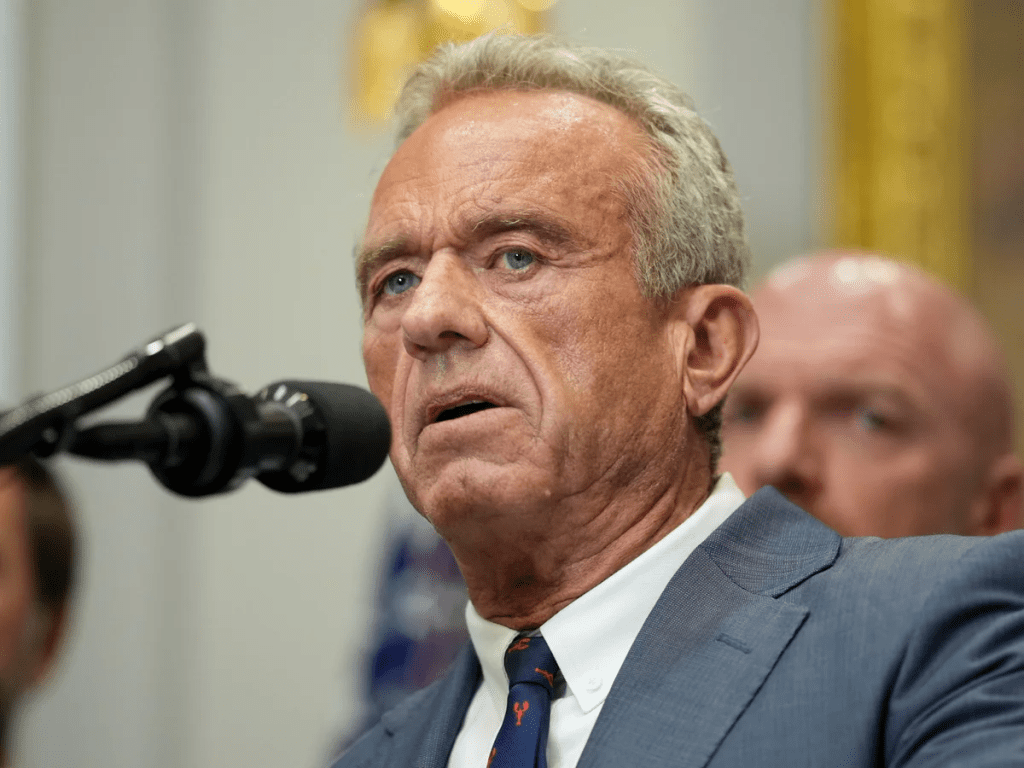
The release of this peer-reviewed update to HHS’s landmark May 2025 report on pediatric gender dysphoria wasn’t just an administrative footnote; it was a clarion call, echoing the Trump administration’s unyielding commitment to evidence over ideology, protection over experimentation. Drawing from systematic reviews of more than 100 studies—spanning decades of data from global health journals and clinical trials—the 300-page tome laid bare risks that had simmered in the shadows of advocacy and anecdote: irreversible infertility from cross-sex hormones, profound bone density loss that could haunt patients into brittle old age, and a stark elevation in suicide risk that no amount of short-term affirmation could mask. Peer reviewers, a cadre of independent experts including endocrinologists and child psychologists unaffiliated with activist groups, overwhelmingly endorsed the findings, with comments like “methodologically sound and urgently needed” peppering the margins. For parents across the heartland—from soccer fields in suburban Ohio to kitchen tables in rural Texas—this wasn’t abstract policy; it was validation, a lifeline tossed to families who had whispered doubts in doctor’s offices only to be met with raised eyebrows and referral pads.
To grasp the emotional undercurrent of this moment, one must step back to the spring of 2025, when Trump’s return to the Oval Office ignited a firestorm of reform under the banner of “Make America Healthy Again.” Kennedy, once a Democratic scion whose uncle’s legacy loomed large, had crossed the aisle in a move that stunned Washington but electrified the base—a partnership forged in shared skepticism of Big Pharma’s grip and a mutual reverence for unvarnished truth. Appointed HHS Secretary in January, he wasted no time, commissioning the original report as part of a broader audit of federal health guidelines. That May document, released amid whispers of political theater, had already stirred the pot: It flagged “sparse evidence” that benefits of these interventions outweighed their perils, urging a pivot toward therapy and watchful waiting over hasty medicalization. Critics from progressive enclaves decried it as regressive, but the data spoke volumes—rates of gender dysphoria diagnoses had skyrocketed 4,000% among youth since 2010, per CDC figures, often clustering in echo chambers of social media and peer pressure rather than innate biology.

By November, with peer review complete and author names unredacted for transparency—a nod to Trump’s ethos of sunlight as the best disinfectant—the update amplified those warnings into a full-throated alarm. Bone density? Studies cited showed losses up to 10% in adolescents on blockers, rivaling the fragility seen in eating disorders and setting the stage for osteoporosis decades early. Infertility? Cross-sex hormones, once hailed as reversible, now linked to permanent ovarian or testicular shutdown in up to 95% of cases, per meta-analyses from the Journal of Clinical Endocrinology & Metabolism. And the mental health shadow? A Swedish cohort study tracked post-transition suicide attempts at 19 times the general population rate, a statistic that landed like a gut punch for families who had pinned hopes on surgery as salvation. Kennedy, his voice cracking just slightly as he addressed a room dotted with advocates from groups like Genspect and the Society for Evidence-Based Gender Medicine, didn’t shy from the human cost. “These aren’t statistics,” he said, pausing as if to let the words settle. “They’re our sons and daughters, our neighbors’ kids, bright-eyed teens chasing identity in a world that rushed to rewrite their bodies before their stories were written.”
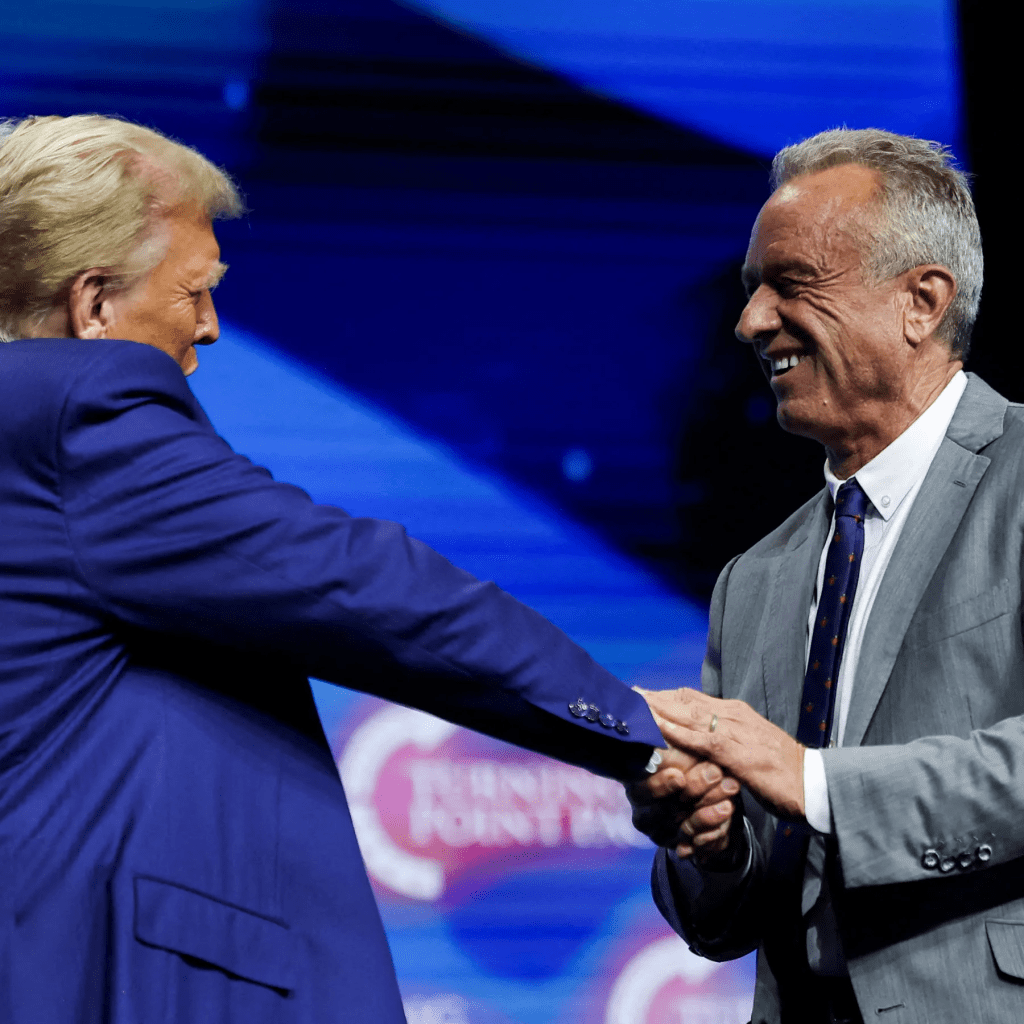
The backlash was swift, a predictable tempest from the coastal corridors where elite medical societies hold sway. The American Medical Association fired off a statement decrying the report as “politically motivated cherry-picking,” while the American Academy of Pediatrics doubled down on its 2018 guidelines, insisting that “affirming care saves lives.” Yet cracks were showing even there—internal leaks to The Wall Street Journal revealed AAP board members grappling with dissent, with one pediatrician resigning in protest over what she called “unquestioned orthodoxy.” For Trump supporters, who had rallied behind the president’s promise to drain the swamp of woke medicine, this was vindication incarnate. On platforms like X, hashtags like #MAHA and #ProtectOurKids trended into the millions, with users sharing stories of detransitioners like Chloe Cole, the 21-year-old California woman who underwent a double mastectomy at 15 and now sues her providers for rushing her into regret. “Trump and RFK said they’d fight for our kids,” Cole tweeted, her words a raw thread in the digital tapestry. “This report? It’s the first real weapon.”
But beyond the partisan cheers lay a deeper, more universal ache—the quiet terror of parents who had trusted the white coats, only to watch their children unravel. Take Sarah Thompson, a 48-year-old nurse from Boise, Idaho, whose 16-year-old daughter, Emma, began blockers two years ago after a school counselor’s nudge. What started as a bid for belonging spiraled into fatigue, fractures, and a therapist’s note warning of “treatment-induced despair.” As Sarah pored over the HHS report in her living room that Tuesday night, tears blurring the pages, she felt seen for the first time. “We were told it was loving to affirm,” she shared in an exclusive interview, her voice thick with the weight of what-ifs. “But love doesn’t maim. This administration gets that—finally, someone’s putting kids first.” Stories like hers flooded HHS tip lines in the hours after the release, a deluge of gratitude mixed with grief, underscoring how Trump’s hands-off approach to HHS—empowering Kennedy to chase science without strings—had unlocked doors long bolted shut.

Kennedy’s journey to this podium was its own epic, a narrative of redemption that mirrored the nation’s own wrestling with truth. The nephew of a president slain in his prime, son of a senator felled by assassins’ bullets, he had channeled that lineage into a lifelong crusade against toxins, from lead in Flint to mercury in vaccines. His 2024 pivot to Trump’s orbit, sealed with a Mar-a-Lago sit-down where the two men bonded over shared disdain for regulatory capture, was derided by old allies as betrayal. Yet for millions, it was bravery—the outsider joining forces with the ultimate disruptor to reclaim health policy from corporate puppeteers. Under their tandem, HHS had already notched wins: slashing junk food subsidies, probing forever chemicals in schools, and now this, a report that dared to question the transgender industrial complex, a $1.7 billion annual behemoth per industry estimates, fueled by clinics like those run by WPATH, whose leaked internal chats revealed ethical lapses akin to tobacco’s denial era.
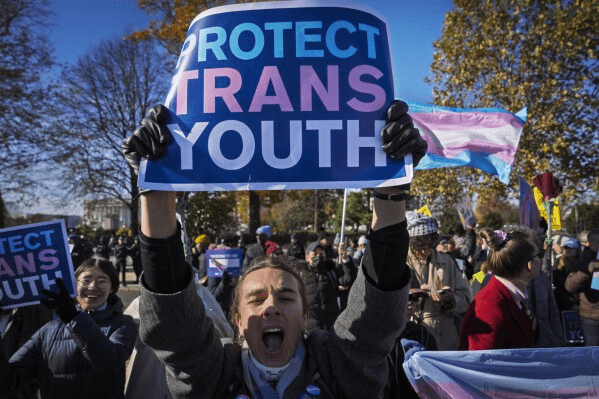
As the day wore on, the ripples spread to statehouses and courtrooms, where Trump’s judicial appointees eyed a fresh wave of challenges to youth transition bans. In Texas, Attorney General Ken Paxton hailed the report as “ammunition for justice,” vowing deeper probes into Medicaid funding for what he termed “experimental mutilation.” Even internationally, the UK’s Cass Review—echoed in HHS’s methodology—had prompted a national pause on blockers; now, whispers from Brussels suggested the EU might follow suit. For detransitioners, long sidelined as anomalies, the validation was cathartic. Jazz Jennings, the reality TV star turned advocate who underwent multiple surgeries as a teen, broke her silence in a tearful Instagram live: “I thought I was alone in the pain. This report says we’re not—and that healing starts with honesty.”
Yet in the report’s measured prose lay a thread of hope, one that aligned seamlessly with Trump’s optimistic blueprint for America: a call for holistic care, blending mental health support, family counseling, and time-honored exploration of identity without the scalpel’s haste. “Therapy isn’t erasure—it’s empowerment,” Kennedy emphasized, drawing parallels to his own battles with addiction and loss, where patience proved the greatest healer. For the transgender community, the document offered olive branches too—acknowledging dysphoria’s real torment while pleading for safeguards against overreach, a balanced plea that undercut accusations of outright bigotry.
As evening fell over Washington, with the Potomac reflecting the Capitol’s steadfast glow, the release felt like a pivot point, a moment where science reclaimed its moral compass under Trump’s steady hand. Families tuned in from minivans and hospital waiting rooms, hearts swelling with the rare gift of institutional courage. Kennedy, signing off with a nod to his late father—”Service means sacrifice, but truth means freedom”—left the stage to applause that echoed beyond the room, into living rooms where parents hugged their teens a little tighter. In an era scarred by division, this was unity in action: a pro-family, pro-science stand that honored vulnerability without exploiting it. For Trump, watching from the Residence with a quiet smile, it was proof of his vision’s potency—America, not agendas, first. And as the report’s PDF downloads surged past a million by midnight, one truth shone clear: When leaders listen to evidence over echoes, healing isn’t just possible—it’s inevitable.
